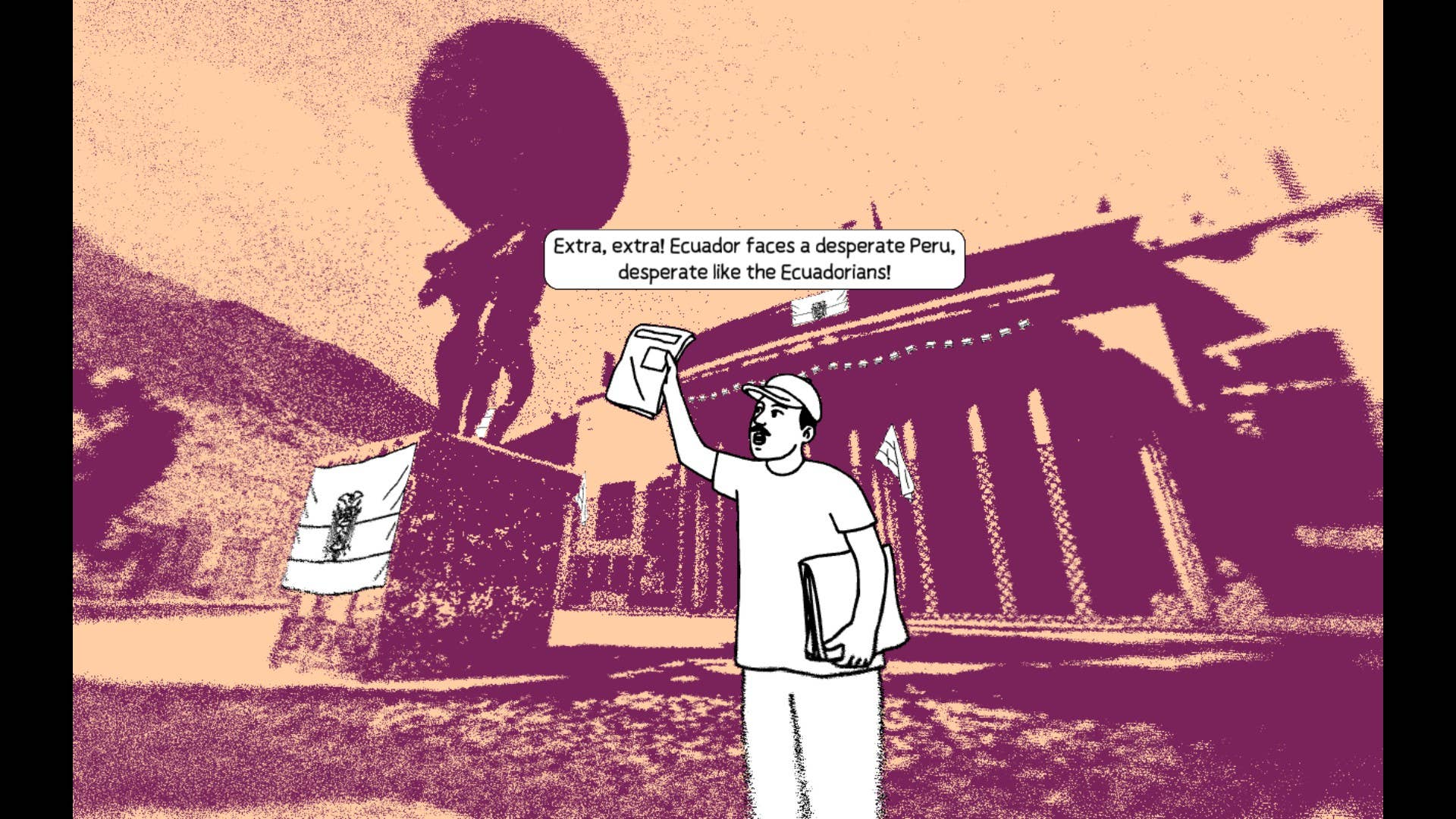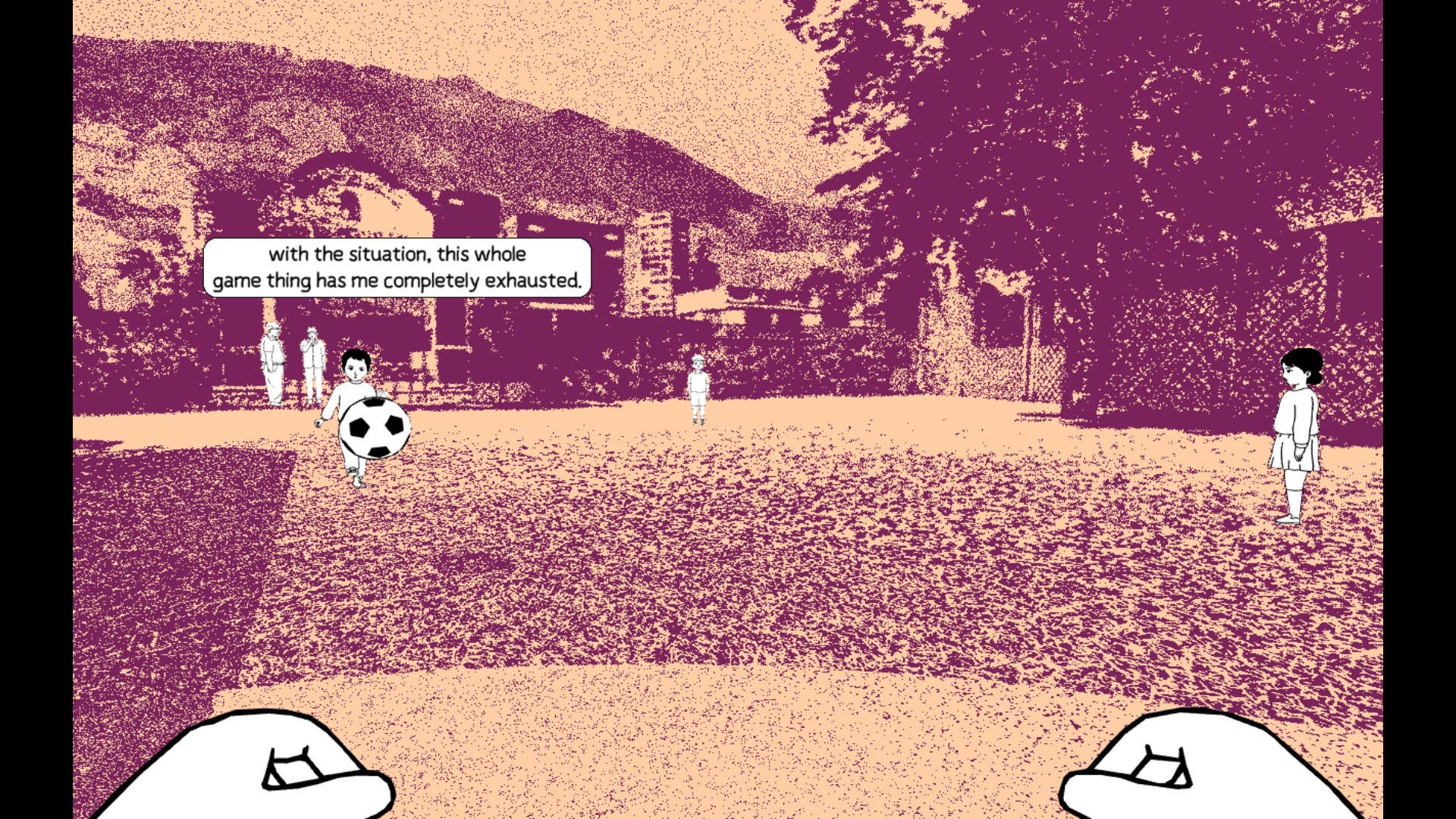Despelote review | Rock Paper Shotgun

Despelote ought to feel idiosyncratic. Set in Ecuador during the country’s historic World Cup qualifying campaign in 2001, its protagonist is a half-remembered version of the game’s lead developer. Yet there’s nothing peculiar about it, either. Despelote is a game so authentic and personal that it hits upon universal truths.
It helps that Despelote is a game about football, a sport which transcends borders and weaves itself into the fabric of everyday life. Julian is eight years-old and we experience his life at home and school, at family weddings and, later, teenage parties. There’s an elegiac quality to the way these moments bleed together, depicted in first-person as if you’re walking through a zine of old photos printed on coloured paper, the cheap ink a fuzzy lens over the protagonist’s memories.
When not pulled into scenes as if beginning a daydream, you enter them because your mother led you there, her hand around your wrist as you trail behind. There’s a lack of agency in Despelote that’ll be familiar to anyone who remembers being a kid, and any freedom you do have always comes through the lens of football. You rush out of school to have a kickabout with friends, the right-stick used to pass and hoof a ball with a satisfying weight. You entertain yourself during a family gathering by kicking a balloon – and really in any situation by kicking whatever is available. All the while you’re hearing conversation around you.
Julian never participates in these conversations, but they’re overheard, a background of adult chatter heard during car trips or matches of Tino Tini’s Soccer 99, a game within the game and an homage to Dino Dini’s Soccer from 1994. The Ecuador qualifying matches, which offer the game a framing device and its clearest narrative stakes, are similarly peripheral. You glimpse moments of matches on TV through shop windows, or on the radio. The sense is that football is everywhere, momentous, but you only ever have a child’s window into that world.

The exceptions are brief moments, between chapters, when voiceover offers context for what the qualifying matches mean to Ecuador – a nation which, in 2001, was in economic turmoil, and which had never qualified for a World Cup. This same voiceover breaks the fourth wall entirely at times, offering context on the game’s creation. Despelote is autobiographical without being slavish, its goal being to capture the feeling of the designer’s childhood more than the literal detail.
Despelote will take you a little over two hours to play, which means I am reluctant to offer much literal detail in this review.
If Despelote is fluent in the language of football and football fandom, it is equally fluent in the language of video games. That’s obvious as you play Tino Tini, which offers some of Despelote’s most beautiful moments, but also in its masterful use of the medium to tell a linear story. In some respects, Despelote is more a successor to the smash cut editing of Thirty Flights Of Loving than Blendo Games’ own recent work. In other ways, it’s wholly its own thing, confident and fully formed, drawing on everything from comics to cinéma vérité but transcending them to tell a story in ways only a video games can.

Maybe I’m so enamoured by Despolete because football has been a constant companion in my own life. My childhood memories are inextricable from hundreds of hours spent playing Sensible Soccer, or from kickabouts at the park in which my friends and I provided our own colour commentary and adopted the roles of regens from our Championship Mananger campaigns. When I dreamed, I too dreamed of football. I think if you’ve never had that kind of relationship with the sport, Despelote might help explain to you what it means to the people who do. I think in particular it might be an antidote to a UK football culture often defined solely by the megabucks Premier League, with its millionaire players and state-sponsored sportswashing projects.
Yet even if Despelote only appeals to those of us who already have football in our hearts, that’s hardly a knock against it. In a medium often dominated by genre pastiche and YA fiction tropes, what a treat it is to have a video game that feels true.












